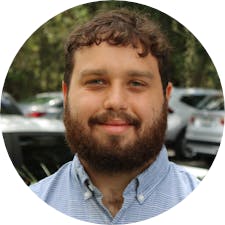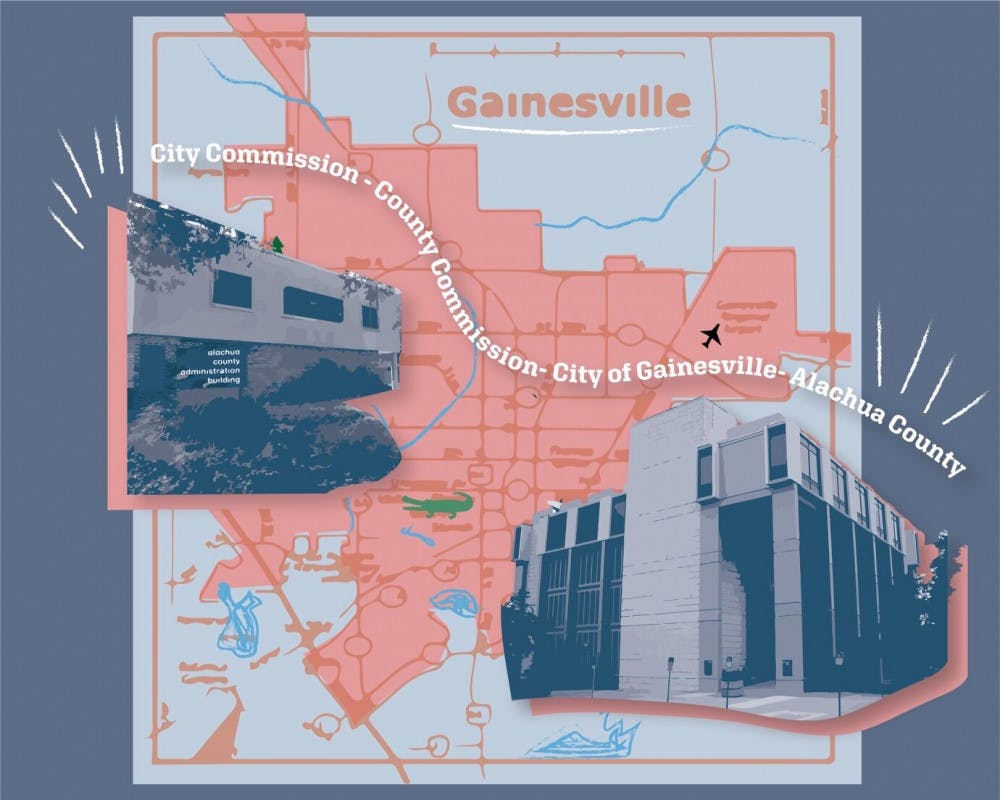The city of Gainesville won its first victory in what’s expected to be a prolonged battle against Florida’s anti-riot law championed by Gov. Ron DeSantis.
In a Sept. 20 hearing, the city advanced past a motion from the state to dismiss its multi-city lawsuit. Three cities didn’t enjoy the same success, as they were dropped from the case.
Now, Gainesville and its partners will have time to reorganize their case before litigation proceeds. The state and dismissed members of the suit will also have time to make an appeal to the court’s decision.
House Bill 1 — also known as the “anti-riot” or “Combatting Public Disorder” bill — took effect April 2021. The law created new criminal charges for non-peaceful protests including felony offenses for violent rioting and damaging monuments. The bill also required local governments to seek approval from the state before decreasing police budgets.
Gainesville was the first to challenge the law and recruited other city governments to file a suit against HB 1 in November. Its primary concern was if the bill would hinder local government by limiting cities’ control over budget.
The case is deeply tied to racial justice protests, as the legislation became DeSantis’ priority in September 2020. It came as a response to nationwide riots following the murder of George Floyd and death of Breonna Taylor.
Critics of the bill claim HB 1 has seen inconsistent enforcement, as Cuban protests in July 2021 blocked major streets in Miami with no criminal citations of the bill, as reported by The Washington Post.
Since Gainesville initiated the suit, eight other municipalities joined to file similar complaints. In an attempt to dismiss the lawsuit, the state filed a motion to drop the case in May on the grounds of lack of cause.
North Bay Village left the case voluntarily prior to the dismissal.
Leon County Judicial Circuit Court Judge J. Lee Marsh ruled in favor of advancing a majority of the suit challenging HB 1.
Gainesville remains one of the five cities advancing in the case. Lake Worth, North Miami and North Miami Beach were dismissed as a result of not having direct plans to act in a way that would see limitations from HB 1.
Jonathan Miller, a lawyer representing Gainesville and chief program officer of nonprofit legal team Public Rights Project, said the suit’s survival in any capacity was a massive success.
“This is a very tough political environment right now to push against this legislature and this governor,” Miller said. “It's incredibly brave and powerful what these cities are doing.”
Clearing the first major hurdle in the lawsuit revitalized advocates’ energy to make sure their case sees its day in court.
Gail Johnson, a former city commissioner who led the city’s decision in pursuing the lawsuit against the state, said the issue quickly transcended the issue of local government powers.
“As local legislators, we would have been unable to respond to community needs,” Johnson said. “It’s beyond the city of Gainesville.”
David Arreola, District 3 city commissioner, said the state should have no say in Gainesville’s budget given the city earns the revenue itself. The city levies its own taxes and decides how to spend its money, he said, just as the state gets to do the same.
The Gainesville City Commission has actively considered changing the funding of youth programs, which are currently under law enforcement’s budget, to instead receive funding elsewhere. Under HB 1, this change would require approval from the state level, according to the city’s legal complaint.“That’s not defunding the police,” Arreola said. “That’s enhancing youth services.”
Supporters of HB 1 feel the legislation helps protect law enforcement, following calls for defunding the police from social justice activists.
Ed Braddy, Republican nominee for the County Commission District 2 seat and former Gainesville mayor, said the bill’s purpose is to help ensure residents remain safe, criticizing the city’s plans for defunding.
“HB 1 does not prevent local governments from funding public safety,” Braddy said.“The issue is how they divert money away from public safety.”
Given Gainesville’s active protest culture, social activists within the community have expressed concerns over HB 1’s potential effects.
Laura Blecha, a 39-year-old Gainesville resident and National Women’s Liberation member, said the bill is an effort to stifle dissenting speech from Floridians.
“It is a very blatant attempt to limit the first amendment rights of Floridians,” Blecha said.
Others agree the legislation fails to address why protests often turn confrontational.
Ruka Scarlett, a 33-year-old Gainesville resident and National Women’s Liberation member, said demonstrations become violent out of necessity when citizens’ needs are not being met.
"We need to fight it, and obviously we’d prefer this peaceful,” Scarlett said. “But they’re giving us no other choice.”
As of Sunday evening, the next court appearance for the lawsuit doesn’t have a published date. Both parties have time to make appeals to the motion and otherwise reorganize their case in the meantime.
Contact Aidan at abush@alligator.org. Follow him on Twitter @aidandisto.

Aidan Bush is a fourth-year journalism major and the Summer 2024 Editor-in-Chief of The Alligator. In his free time, he likes to listen to music and go kayaking.






